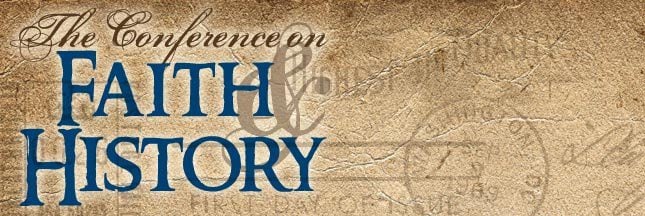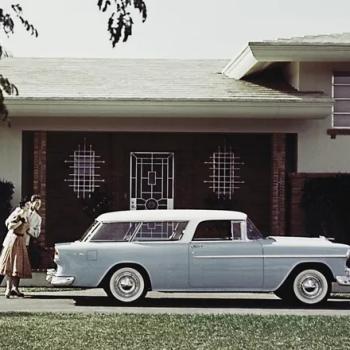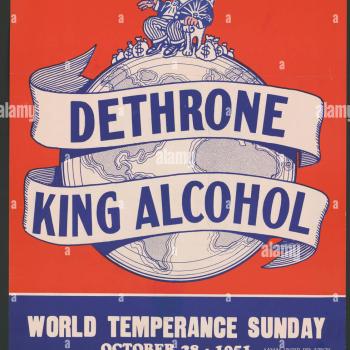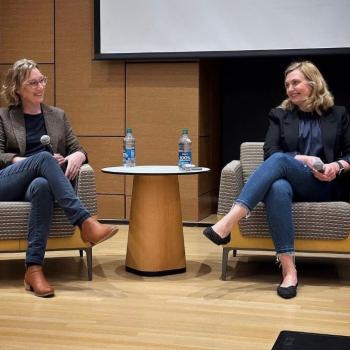
For decades, committed evangelicals such as Richard Pierard, Robert Linder, George Marsden, Mark Noll, Nathan Hatch and others worked towards two different goals aimed at two different audiences. First, to an evangelical constituency in which fundamentalism’s suspicion of the academy lingered, they cultivated the idea of history as a legitimate Christian vocation. Second, building on their commitment to history as a Christian calling, and thus worthy of diligence in execution, they labored to demonstrate that their work could meet the standards of the professional guild. Indubitably, they succeeded on both counts. On the first, their work continues to edify ministers and laypeople, and many young evangelicals have pursued vocational callings in teaching and research as a result of their modelling. On the second, many self-described evangelical historians have excelled in the guild, publishing books with respected academic presses, teaching in well-known public and private universities–including Ivy League schools–even winning the Bancroft Prize in 2004.
Some, however, worry that success in the second realm might have unintentionally led to inattention to the first, not purposefully, but due to the inertia of the professionalism and camaraderie that pervades all vocations. In this assessment, evangelical historians end up speaking to each other and their colleagues in the guild, neglecting to speak (read: write) to their fellow evangelicals outside the profession. As a result, historical popularizers like David Barton fill the gap, providing an inaccurate sort of providential history that resonates with the way evangelical laypeople and ministers imagine the development of history, while leaving evangelical historians frustratedly feeling like outsiders among their own people.

At the last biennial meeting of the Conference on Faith & History, President Tracy Mckenzie urged members to “re-envision their calling,” thinking seriously about a different audience than the guild of scholars–the church. McKenzie lamented that Christian historians often eschew what is considered the “parochial” work of speaking to the church in favor of “public discourse.” He noted that “public discourse” often ironically ends up meaning that narrow, “rarified cultural milieu of the secular intellectual.” McKenzie concluded his speech by citing Hauerwas and Willimon in their assessment that “the church is the one political entity in our culture that is global, transnational, transcultural,” implying that the real “parochial” public might be the narrowly defined scholarly guild itself.
In part, this year’s theme for the upcoming (September 25-27) Conference on Faith and History “Christian Historians and their Publics,” picks up the challenge that McKenzie laid down. The call for papers, which went out earlier this year, challenged historians to think about the various publics–especially beyond the professional guild–to whom their work might be addressed and how their “identity as Christians” might have “any bearing on the [various] publics they address.” This will be my second time attending the biennial meeting of the Conference on Faith and History, but I have been a lurker for quite some time, studying the programs, reading the papers published from the conference, and combing the journal. Given those qualifiers, this year’s program seems the strongest yet. (Kudos to program chair Jay Green of Covenant College for assembling such a promising program.) Over the long weekend, four plenary sessions are interspersed between seven concurrent session groupings. The plenary session speakers this year are stellar:
Plenary #1: Allen Guelzo (Gettysburg College) – “Respectability: The Pursuit of a Historical Illusion”
Plenary #2: Colleen McDannell (University of Utah) – “Heritage Religion and the Mormons”
Plenary #3: John Wigger (University of Missouri) – “Reaching a Wider Audience”
Plenary #4: Charles Marsh (University of Virginia) – “‘Spread Hilaritas!’: Writing History out of a Higher Satisfaction”
In addition, the forty-nine sessions that make up the bulk of the program demonstrate the sort of broader re-envisioning of vocation that McKenzie exhorted evangelical historians towards and the call for papers urged. There are sessions on the following:
Filmmaking as a Christian historical venture (2 separate sessions)
“Papal Authority and the Public Intellectual”
“Devotional Practices and Historical Study”
“Teaching Church History to People of Faith”
“Navigating the Tensions Between Faithful Scholarship and Serving Christian Constituencies”
“Christian Historians and Social Media” a roundtable discussion with blogging luminaries John Fea, Chris Gehrz, and Paul Putz.
I am also looking forward to getting some constructive criticism on my own paper, “Coloring the Young People’s Prayer Meeting: The Sunday School Times and the Challenge of Mid-Century Race Relations” from the inimitable Arlene Sanchez-Walsh. There are many other appealing sessions scheduled– too many for me to list, although you can peruse a draft of the regular conference program here.
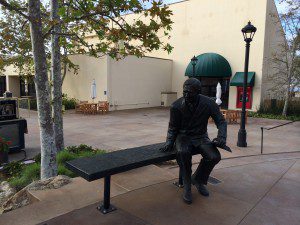
Also appealing is the location. Every other year, the conference convenes at an evangelical college or university. Two years ago, it was held at beautiful Gordon College in Wenham, MA. This year it will be at Pepperdine University in equally (or more) beautiful Malibu, CA. There are innumerable hiking trails within a short drive from Malibu. Thus, after attending the conference with my colleague John D. Wilsey, who will also present a paper drawn from his current research on the long intellectual tradition of American Exceptionalism (book forthcoming from IVP), we will hike somewhere nearby. I’m looking forward to all of it.
Reference:
Robert Tracy McKenzie, “The Vocation of the Christian Historian: Re-envisioning Our Calling Reconnecting with the Church,” Fides et History 45:1 (Winter/Spring 2013): 1-13.


